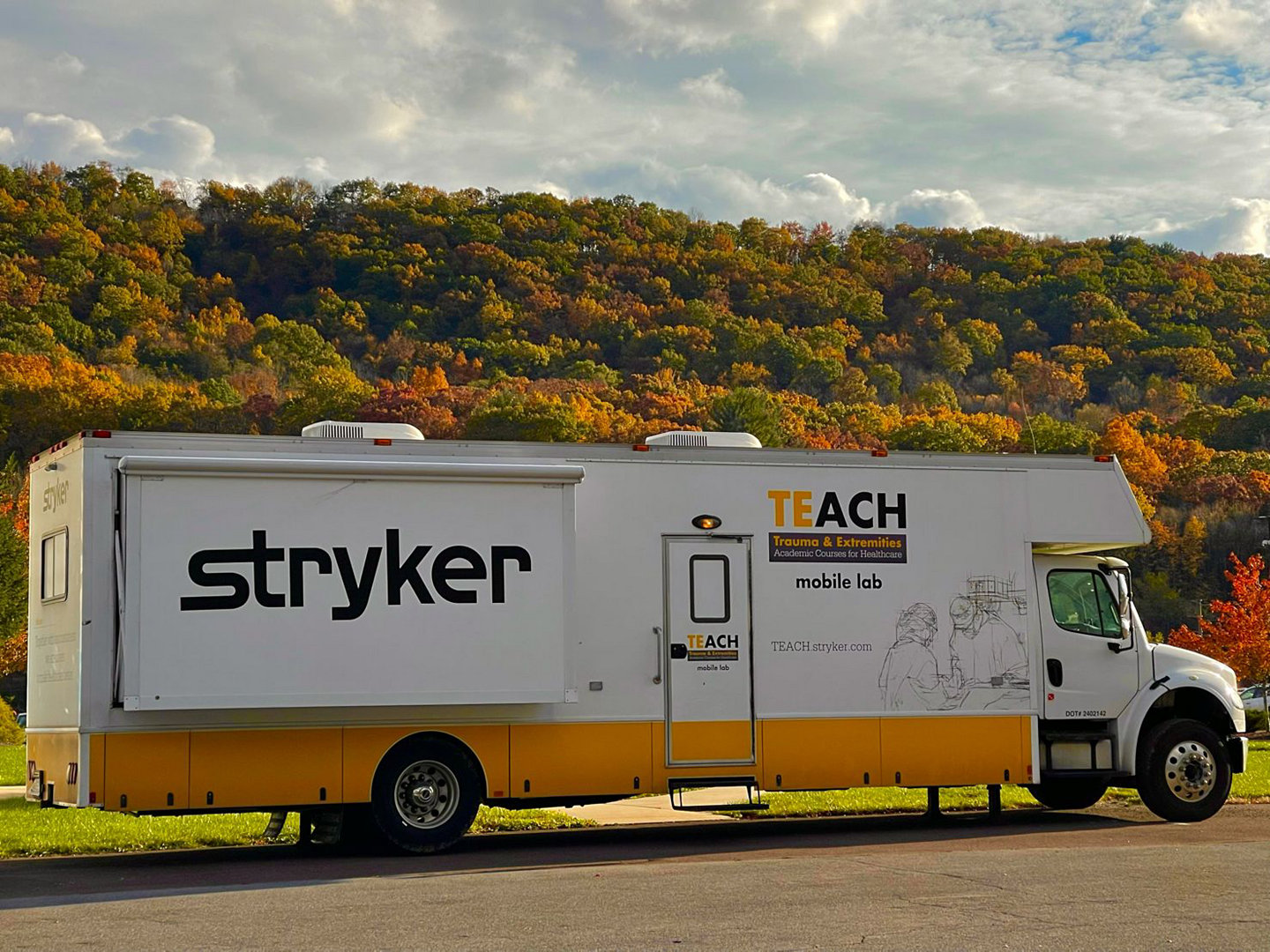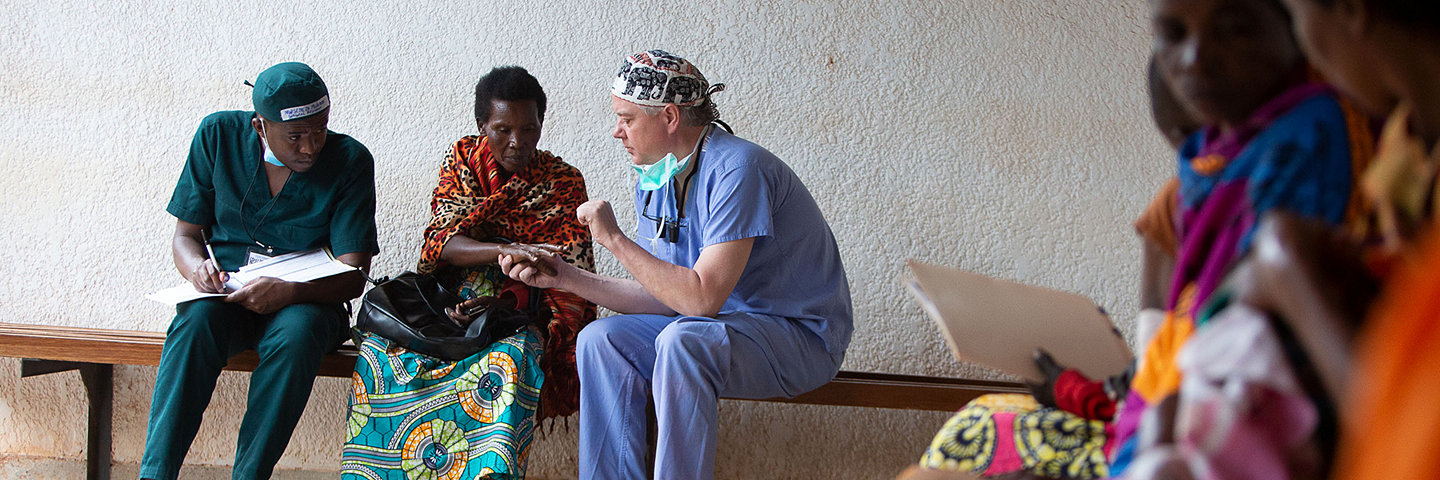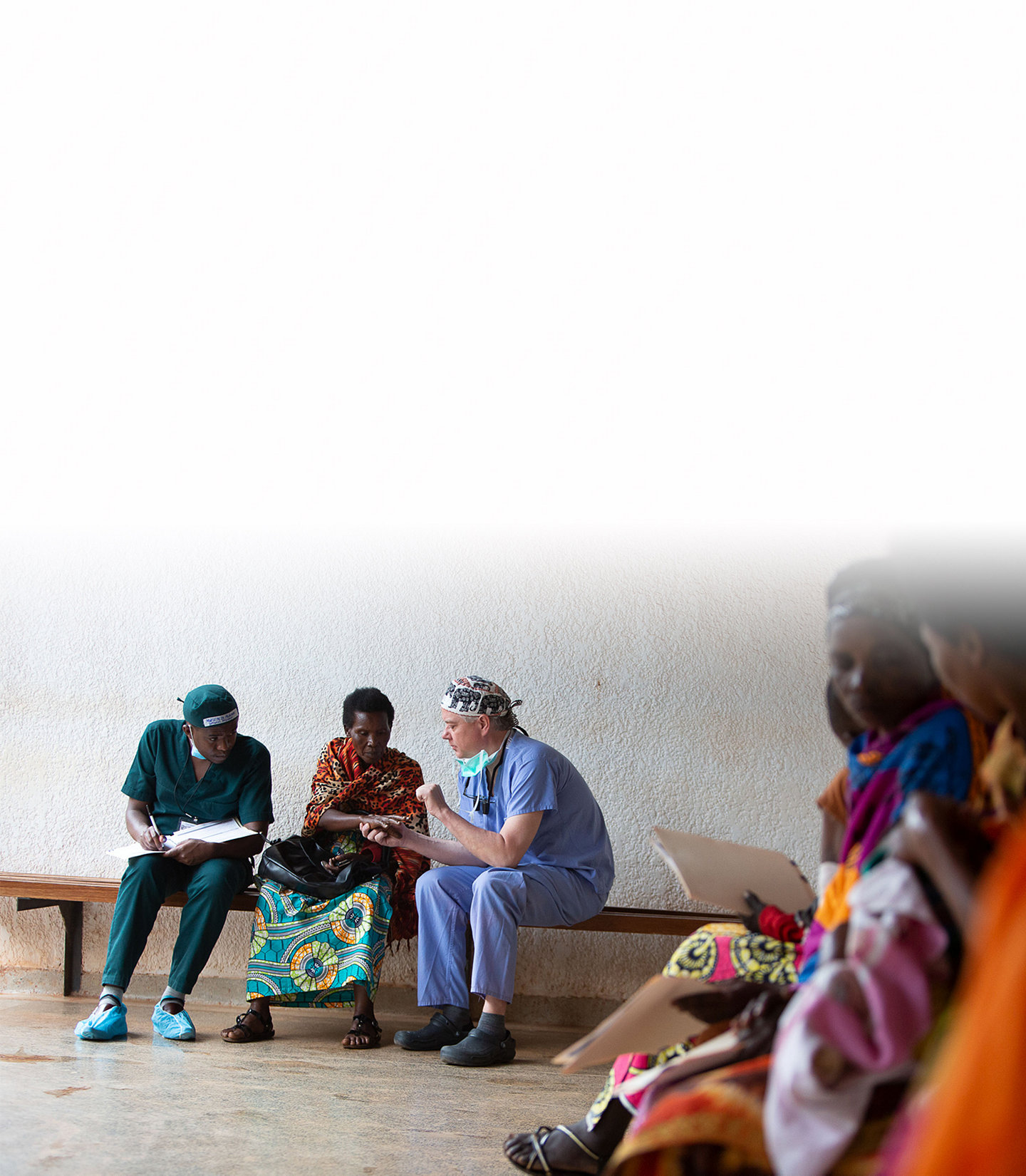27-Mar-2023
With more than 930,000 active physicians in the United States, training and education opportunities are integral in a physician’s ability to improve patient outcomes.1 The following programs and initiatives expand access to quality training, and as a result, quality healthcare around the world.

A photo of the TEACH mobile lab at its destination in Danville, PA.
1. Bringing training and education to physicians
When a medical education truck parks outside a hospital, it makes it simple for physicians to get the training they need. Our Trauma and Extremities team utilizes seven mobile labs throughout the country to bring education directly to healthcare professionals. The fleet is comprised of six labs that accommodate two surgical training stations each, and one large lab that accommodates eight stations. Fully equipped with surgical tables, lighting, power and a variety of Stryker solutions for trauma, foot & ankle and upper extremities procedures, each training is customized to the needs of our customers.
Medical education courses are also offered in a traditional lab setting across multiple specialties in cities throughout the country.

Dr. Erica Taylor, MBA is the CEO and Founder of the Orthopaedic Diversity Leadership Consortium where she partners with the Board of Advisors to drive impact. Drs. A. Rashard Dacus, Linda Suleiman and Julius Oni are on the Board of Advisors for the Orthopaedic Diversity Leadership Consortium, where they focus on professional development, medical education and network development for diverse surgeons.
2. Supporting physicians from diverse backgrounds with leadership development, networking and program implementation
We continue to support the advancement of diversity within healthcare as our customers and partners work to ensure physicians reflect the diversity of the communities they serve. The American Orthopaedic Foot & Ankle Society (AOFAS) and Orthopaedic Diversity Leadership Consortium (ODLC) are two organizations that we’re working with to positively impact diversity in the orthopaedic specialty.
We continue to partner with AOFAS as they develop and lead their own diversity, equity and inclusion efforts. The ODLC also offers us an opportunity to help optimize the effectiveness and sustainability of diversity efforts in academic departments and healthcare organizations. “By partnering with Stryker to offer professional development programs, networking and medical education opportunities, we can help advance orthopaedic surgery diversity, equity, and inclusion leaders and improve orthopaedic care,” says Dr. Suleiman, an orthopaedic surgeon and Board Advisor for the ODLC from Chicago, Illinois. “Four percent of orthopaedic residents entering medical school are Black and just 1.9% of them graduate as a practicing orthopaedic surgeon.2 It’s a challenge that we’re excited to work with Stryker to address.”

Dr. Steven Naum, a plastic surgeon, has been a volunteer surgeon for Operation Smile medical programs in Rwanda, Africa for many years. Here, Dr. Naum is examining a patient with University of Rwanda general surgery resident, Philemon.
3. Promoting global health through support of medical education programs
Our partnership with Operation Smile advances our mission through medical education programs that directly serve those in need. These education and training programs are designed to train healthcare professionals and build surgical capacity in under-resourced countries such as Rwanda, where Stryker funds the Rwanda Surgical Training Rotation.
Dr. Steven Naum, a plastic surgeon from Grand Rapids, Michigan and volunteer plastic surgeon for Operation Smile shares, “The situation in Rwanda has developed into this surgical rotation model, and we’ve been able to now have general surgery residents from the University of Rwanda rotate with us [experienced surgeons and anesthesiologists]. It’s become part of their training as general surgery residents.” By supporting the development of medical education and training programs for surgeons and other healthcare professionals, we’re helping Operation Smile multiply its impact, and empowering professionals to hone their skills while increasing surgical capacity in some of the most under-resourced countries.
References
1. Active physicians with a U.S. doctor of medicine (U.S. MD) degree by Specialty, 2019. Association of American Medical Colleges. (n.d.). Retrieved March 23, 2022, from https://www.aamc.org/data-reports/workforce/interactive-data/active-physicians-us-doctor-medicine-us-md-degree-specialty-2019
2. A snapshot of U.S. orthopaedic surgeons: results from the 2018 OPUS survey. Table 1: Race/ethnicity of surgeons. September 2019. American Academy of Orthopaedic Surgeons. Accessed 22 March 2022, from https://www.aaos.org/aaosnow/2019/sep/youraaos/youraaos01/
COMM-GSNPS-WEB-587138


